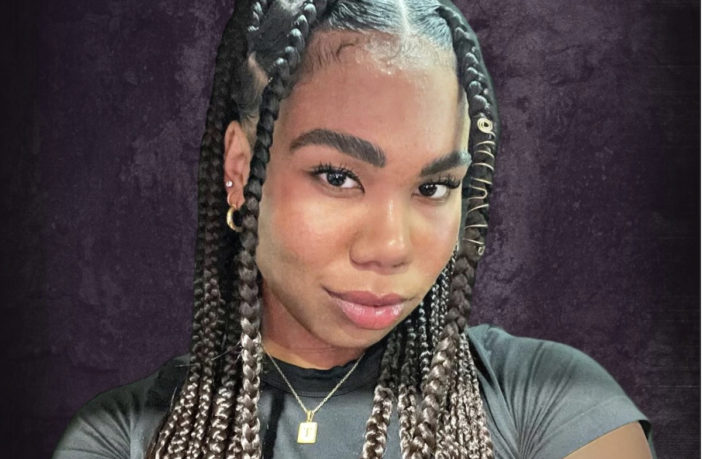Word in Black is a collaboration of 10 of the nation’s leading Black publishers that frames the narrative and fosters solutions for racial inequities in America.
Tiana Day is a young woman in a hurry.
She was 17 when she organized and led her first protest march after the murder of George Floyd — one of the largest in the San Francisco Bay Area. Not long afterward, she founded her own nonprofit and raised $10,000 in college scholarships. A University of Southern California (USC) undergrad herself, Day is CEO of her own diversity consulting firm and works with the USC Race and Equity Center.
It’s a turbocharged transformation for a young woman who, not long ago, was a frustrated Black cheerleader at a mostly-white, suburban high school. For Day, however, her meteoric rise to award-winning activist nonprofit executive and budding philanthropist is simply about the future. And the future is now.
“I think that my biggest fear when it comes to this work is that I don’t necessarily have a choice,” says Day, 20, mindful of her siblings and the kids she might parent someday. “If I’m not doing something to advance equity for them, (my children) aren’t going to have it, and my younger sisters aren’t going to have it.”
That mission — advancing equity for people not much younger than her — involves learning about the past and dealing with racial trauma, including her own.
Growing up in the affluent Bay Area suburbs, the daughter of a Black man and Filipina woman, Day didn’t know much about her heritage, and struggled with identity issues. Microaggressions at mostly-white schools, from teachers as well as classmates, were routine.
“My lived experiences have, at times, made me hate my Blackness,” she explains.
That changed when Floyd died, pinned beneath the knee of a Minneapolis police officer. Angry and frustrated, Day signed up for a protest march across the Golden Gate Bridge — until one of the organizers revealed a big problem: 24 hours ahead of the march, they had permits but no leader. Acting on impulse, Day agreed to do it, even though she had no organizing experience.
Against all odds, and with a little help from her father, a former protest organizer, the march was a success, drawing thousands of people. Day had unlocked her purpose.
“I got a lot of inspiration from other organizers, other young people who are so aware of the issues that we’re facing today and how systemic they are,” she says. But “for me, really, this work is so generationally healing. My father was organizing during the Rodney King (protests). My grandfather was a founding member of the Black Panther Party in Oakland.”
The success of the Golden Gate Bridge protest motivated Day to dive full-speed into advocacy and activism, starting with founding Youth Advocates for Change.
“Our mission is to amplify youth voices and their intersectional social justice issues through creative arts,” Day says. “We use creative arts as a healing modality to reach young people. I think it’s really important that when you’re doing work in social justice and advocacy, that you’re representing your own passions and your own natural talents in the work.”
Youth Advocating For Change holds workshops and assemblies at high schools around the area, using a “critical consciousness” framework, Day says. The framework educates young people on systemic problems around race, gender, and sexuality, then encourages them to take action through advocacy, self-expression, or both, with support from the organization.
Tackling intersectional issues is important because “we not only learn about ourselves but each other,” Day says. “But it’s very hard to tell the story in a space that is not welcome. So for me, creating a space was about making it known that we are all so different from each other.”
Though she’s been honored as a changemaker, Day says self-care is important when dealing with heavy topics like racism, homophobia, and violence. That’s why she’s becoming a certified yoga teacher and incorporating the discipline into the Youth Advocating for Change curriculum.
“Dealing with all of these very heavy emotions is very depressing, and when you don’t see the outcomes that you’re working for, sometimes it is enough to push you out of the work,” she says. “You start to understand how these systemic issues have come to be, and that awakening that consciousness is stepping into healing work in itself, but it’s also uprooting so much generational trauma. My history was not told to me because my dad was afraid that I would grow up thinking that I had no choice but to do this work.”
Still, “If I can pull people in, help them realize their power, and how they can use their power for good in the world, and also projected out in a creative way,” she says, “I feel like I’ve achieved my mission.”



